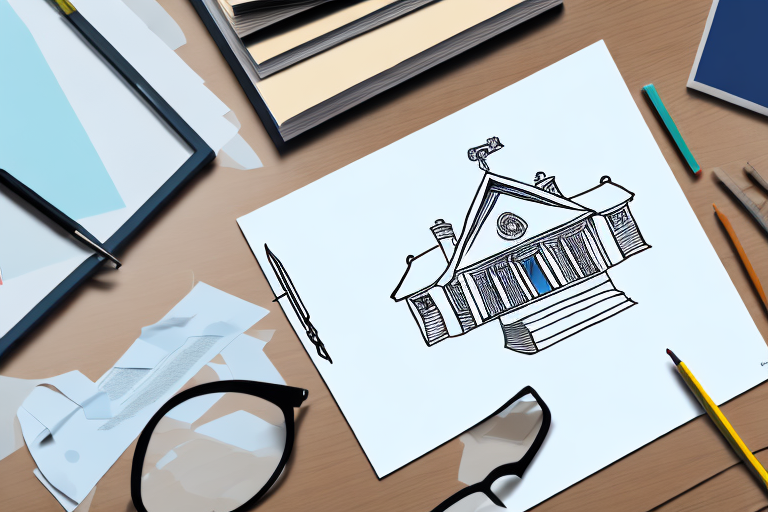Buying or selling property can be a complex and overwhelming process. There are numerous legal and administrative tasks involved, which can be time-consuming and confusing for individuals who are not familiar with the intricacies of property transactions. This is where a conveyancer plays a crucial role. A conveyancer is a legal professional who specializes in property law and acts as an intermediary between the buyer, the seller, and their respective solicitors. Let’s explore the job of a conveyancer in more detail, including their key responsibilities, skills, qualifications, and the importance of hiring one in property transactions.
Understanding the Job of a Conveyancer
The conveyancers play a crucial role in ensuring that the legal transfer of property ownership is executed smoothly and efficiently. They handle the legal aspects of the property transaction, including conducting searches, preparing legal documents, and liaising with the relevant parties involved.
When it comes to conducting searches, a conveyancer goes above and beyond to ensure that the property being bought or sold is free from any legal issues or restrictions. They delve into the depths of planning permissions, meticulously examining whether there are any potential obstacles that may hinder the property’s value or usage. Additionally, they leave no stone unturned when it comes to environmental concerns, ensuring that the property is not entangled in any ecological complications.
Preparing and reviewing legal documents is another crucial responsibility of a conveyancer. They meticulously scrutinize contracts of sale, property titles, and mortgage agreements to ensure that every word is precise and accurate. Their attention to detail is unparalleled as they strive to create airtight documents that protect their clients’ interests. Visit https://charlesbridgeslaw.com/understanding-the-conveyancing-process-a-comprehensive-guide for understanding the conveyancing process.
Furthermore, conveyancers take on the role of facilitators, ensuring the smooth exchange of contracts between the buyer and seller. They act as the glue that holds all parties together, coordinating with solicitors, mortgage lenders, and other professionals involved in the transaction. Their ability to navigate through the complexities of the process is a testament to their expertise and dedication.
Skills and Qualifications of a Conveyancer
To perform their role effectively, conveyancers must possess a range of skills and qualifications. Strong attention to detail is an absolute must, as they need to meticulously examine every aspect of the property transaction. Their organizational skills are put to the test as they juggle multiple tasks simultaneously, ensuring that nothing falls through the cracks.
In addition, conveyancers must have a comprehensive understanding of property law and conveyancing regulations. Their knowledge serves as a compass, guiding their clients through the intricate maze of legal requirements. With their expertise, they provide accurate advice and guidance, ensuring that their clients make informed decisions throughout the buying or selling process.
Effective communication is another vital skill that a conveyancer must possess. They act as the bridge between various parties involved in the transaction, including the client, solicitors, real estate agents, and mortgage lenders. Their ability to convey information clearly and concisely is paramount in keeping all parties updated and informed.
In conclusion, the job of a conveyancer goes beyond the surface of legal transactions. They are the guardians of smooth property transfers, meticulously examining every detail, and ensuring that all parties involved are well-informed. With their expertise and dedication, they play a vital role in the world of real estate, providing peace of mind to buyers and sellers alike.
The Conveyancing Process Explained
The conveyancing process involves several stages, each of which requires careful attention and expertise. Understanding these stages can help individuals navigate the process more confidently.
Initial Stages of Conveyancing
The initial stages of conveyancing involve gathering information and conducting necessary searches. The conveyancer will review the contract, conduct searches to check for any legal issues or restrictions, and obtain a copy of the title and plan of the property.
During this stage, the conveyancer will also assess the property’s boundaries and any potential rights of way or easements that may affect the buyer’s use of the property. They will carefully examine any planning permissions or building regulations that may impact the property’s value or future development potential.
Furthermore, the conveyancer will investigate any potential environmental concerns, such as contamination or flood risks, to ensure that the buyer is fully informed about the property’s condition and any associated risks.
In addition to these tasks, the conveyancer will liaise with the client’s mortgage lender, if applicable, to ensure that all necessary financing arrangements are in place. They will communicate with the lender to provide any required documentation and ensure that the mortgage funds are available for the completion of the transaction.
The Exchange of Contracts
Once all searches have been completed and any necessary negotiations or inspections have taken place, the conveyancer arranges for the exchange of contracts. At this stage, both the buyer and the seller become legally bound to complete the transaction.
Before the exchange of contracts, the conveyancer will carefully review the final contract documentation to ensure that all legal requirements are met. They will verify that the contract accurately reflects the agreed-upon terms and conditions, including the purchase price, any special conditions, and the agreed-upon completion date.
Once the conveyancer is satisfied with the contract, they will coordinate the exchange of contracts between the parties. This typically involves the buyer and seller signing identical copies of the contract and exchanging them. The conveyancer will then notify both parties of the exchange and provide them with a copy of the signed contract.
After the exchange of contracts, the conveyancer will handle the transfer of the deposit from the buyer to the seller. They will also inform the relevant parties, such as the mortgage lender and the buyer’s solicitor, about the exchange and the agreed-upon completion date.

Completion and Post-Completion Tasks
Completion refers to the final stage of the conveyancing process, where the property ownership is transferred from the seller to the buyer. The conveyancer handles all the necessary paperwork and financial arrangements to ensure a smooth and legally compliant transfer.
During the completion stage, the conveyancer will prepare the final completion statement, which details all the financial transactions involved in the purchase. This statement includes the purchase price, any adjustments for taxes or fees, and the amount of money required from the buyer to complete the transaction.
Once the completion statement is finalized, the conveyancer will coordinate the transfer of funds between the buyer, seller, and any relevant parties, such as the mortgage lender. They will ensure that all payments are made on time and in accordance with the agreed-upon terms.
Post-completion tasks include registering the property with the relevant authorities to officially transfer the ownership to the buyer. The conveyancer will prepare and submit the necessary documents to the Land Registry or other appropriate authority to update the property’s ownership records.
In addition, the conveyancer will notify the local council of the change in ownership, ensuring that the buyer’s details are updated for council tax purposes. They will also facilitate the payment of any applicable taxes and fees, such as stamp duty land tax, to ensure that the buyer fulfills their financial obligations.
Overall, the conveyancing process is a complex and detailed procedure that requires the expertise of a qualified conveyancer. By understanding the various stages involved, individuals can approach the process with confidence, knowing that their conveyancer will guide them through each step and ensure a successful property transaction.
The Importance of a Conveyancer in Property Transactions
Hiring a conveyancer is crucial in ensuring that property transactions are executed smoothly and legally compliant. Their expertise and experience safeguard both the buyer and the seller throughout the process.
Ensuring Legal Compliance
A conveyancer ensures that all legal requirements are met during the buying or selling process. They conduct thorough searches to identify any potential legal issues or restrictions and advise their clients accordingly. This helps prevent future disputes or complications.
For example, in the case of buying a property, a conveyancer will conduct searches to check for any outstanding mortgages, liens, or other encumbrances on the property. They will also verify the title ownership and ensure that there are no legal disputes or claims against the property.
Conveyancers also ensure that all contractual obligations are fulfilled and guide their clients through any legal complexities that may arise during the transaction. This includes reviewing and explaining the terms and conditions of the contract, ensuring that all necessary documents are properly executed, and facilitating the transfer of ownership.
Facilitating Smooth Transactions
By taking care of the administrative tasks and paperwork, conveyancers help reduce the stress and burden on both buyers and sellers. They handle the coordination and communication between various parties involved, ensuring that everyone is kept updated and informed throughout the process.
For instance, when selling a property, a conveyancer will prepare the necessary documents, such as the contract of sale and the vendor’s statement, and ensure that they are accurate and complete. They will also liaise with the buyer’s conveyancer, real estate agents, and other relevant parties to facilitate a smooth and timely exchange of contracts.

Conveyancers also act as a point of contact for any queries or concerns, providing guidance and support to their clients. Their knowledge and expertise help streamline the entire transaction, minimizing delays and potential complications.
Additionally, conveyancers may assist with arranging property inspections, organizing settlement arrangements, and ensuring that all necessary payments, such as stamp duty and transfer fees, are made on time.
In summary, the role of a conveyancer goes beyond just ensuring legal compliance. They play a crucial role in facilitating smooth property transactions, providing peace of mind to both buyers and sellers. Their attention to detail, knowledge of the legal requirements, and ability to navigate complex processes make them an invaluable asset in any property transaction.
Choosing the Right Conveyancer
Choosing the right conveyancer is crucial to ensure a successful property transaction. Consider the following factors when selecting a conveyancer:
What to Look for in a Conveyancer
- Experience and expertise in property law
- Positive reputation and client testimonials
- Attention to detail and strong organizational skills
- Clear and transparent communication
- Affordability and competitive fees
Questions to Ask a Potential Conveyancer
- How long have you been practicing conveyancing?
- Have you handled similar property transactions before?
- Can you provide references or testimonials from previous clients?
- What is your fee structure? Are there any additional costs to consider?
- How will you keep me informed throughout the process?
Costs Involved in Hiring a Conveyancer
When hiring a conveyancer, it is important to understand the costs involved to budget accordingly. The main cost is the conveyancer’s fee, which can vary depending on factors such as the complexity of the transaction and the conveyancer’s experience. It is advisable to obtain quotes from multiple conveyancers to compare fees and services.
Understanding Conveyancer Fees
Conveyancer fees typically include a professional fee for their services and disbursement costs, which are expenses incurred during the process, such as searches and registration fees. It is essential to clarify the fee structure with the conveyancer upfront to avoid any surprises.
Additional Costs to Consider
In addition to the conveyancer’s fees, there may be additional costs to consider, such as stamp duty, land registry fees, and bank transfer fees. These costs can vary depending on the property value and location. It is advisable to discuss these potential costs with the conveyancer to ensure that all financial aspects of the transaction are accounted for.
In conclusion, a conveyancer plays a vital role in property transactions, ensuring that the legal transfer of property ownership is conducted smoothly and in compliance with relevant regulations. Their expertise, knowledge, and attention to detail help safeguard both buyers and sellers throughout the process. Understanding the role of a conveyancer, the conveyancing process, and the costs involved is essential for a successful property transaction.
